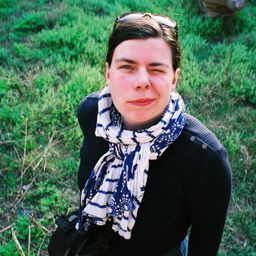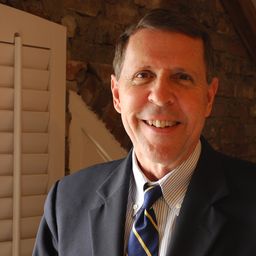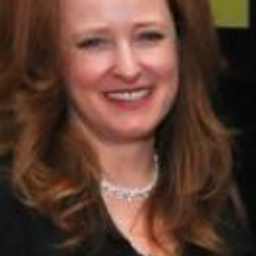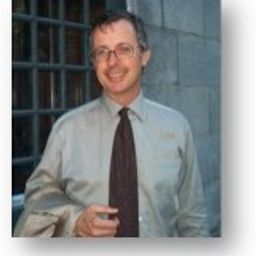
Caroline BODOLEC is senior researcher with the French National Scientific Research Center (CNRS) at the Centre d’études sur la Chine moderne et contemporaine (UMR 8173 Chine, Corée, Japon)
Her field of research focus on the intangible cultural heritage and on the appropriation of the Intangible cultural heritage convention of UNESCO (2003) in China. She conducts fieldwork studies over northern part of the country, especially in Shaanxi and Shanxi provinces. She also works on the history of construction and the anthropology of techniques during Late imperial and contemporary China. She published several articles in those topics and a book entitled La voûte dans l'architecture chinoise : un patrimoine méconnu (Maisonneuve et Larose, 2005). She is co-author of a documentary made with Elodie Brosseau entitled Yaodong, little treaty of construction, 89 ', EHESS & AnimaViva production that won the Intangible Cultural Heritage Award at the 31st Festival of Ethnographic Film Jean Rouch in 2012 and the second prize at the Festival du Film de chercheurs, Nancy, 2014.
Sessions in which Dr Caroline Bodolec participates
Tuesday 7 June, 2016
Sessions in which Dr Caroline Bodolec attends
Friday 3 June, 2016
What does heritage change for tourism? | Le patrimoine, ça change quoi au tourisme? Ce débat veut interroger les relations entre le tourisme et le patrimoine et dépasser ainsi les idées reçues sur l'antagonisme entre le tourisme "corrupteur" et le patrimoine qui en serait la victime. Il s'agit donc de repenser le tourisme comme un réel acteur du patrimoine, de sa valorisation et de son appropriation, y compris par les populations locales. Cela présuppose, au p...
This forum will explore the current directions of critical heritage studies and what makes ACHS distinctive. Panel members will discuss what the term critical means to them, and what directions they would like to see develop in the future. To help develop an open dialogue, the session will also give considerable time to contributions from the audience.
Welcome addresses and cocktail, followed by the Concordia Signature Event "The Garden of the Grey Nuns". As the opening ceremony and cocktail take place in the former Grey Nuns' Motherhouse, recycled into campus residence and reading rooms by Concordia University, delegates will also have the possibility to discover the video Three Grey Nuns (3 minutes, by Ron Rudin and Phil Lichti. Three Grey Nuns recount their memories of communal life in the Grey Nun’s Motherhouse. Built...
Saturday 4 June, 2016
What if we changed our views on heritage? And if heritage has already changed? While, on the global scene, states maintain their leading role in the mobilization of social and territorial histories, on the local scale, regions, neighbourhoods and parishes have changed. Citizens and communities too: they latch on to heritage to express an unprecedented range of belongings that no law seems to be able to take measures to contain, often to the discontent of...
Heritagization (the various means by which cultural features—either material or immaterial—are turned into a people’s heritage) has recently become, for Amerindian groups, a major means to gain visibility and recognition in the new Latin American social and political landscapes where cultural diversity is endowed with an increasingly critical role. Different forms of cultural heritagization have largely been studied elsewhere, particularly in North America. However, they are far less known in...
Le patrimoine recouvre des notions et des pratiques, et désigne des objets, dont « [la] perte constitue un sacrifice et [dont la] conservation suppose des sacrifices » (Chastel et Babelon 1980). En amont de ces productions de significations et perceptions sociales, ces notions et les modes de désignation diffèrent selon les univers linguistiques, géographiques, et temporels, alors que, sous la pression d’un ‘algorithme universalisant’ (Merleau-Ponty 1969), un processus de normalisation est...
Most of what we experience as heritage emerges into conscious recognition through a complex mixture of political and ideological filters, including nationalism. In these processes, through a variety of devices (museums, scholarly research, consumer reproduction, etc.), dualistic classifications articulate a powerful hierarchy of value and significance. In particular, the tangible-intangible pair, given legitimacy by such international bodies as UNESCO, reproduces a selective ordering of cul...
Sunday 5 June, 2016
(In English) Chinatown, born in the second half of the 19th century, is a hub of commercial and sociocultural activities which showcases Chinese culture in Montreal. It has become, over time, an iconic landscape of the city’s cultural diversity. Jonathan Cha, urbanologist, landscape architect and doctor in both space and town planning, proposes a discovery tour allowing us to get acquainted with the history of the district and the decipherment of its landscape. _ Le Quartier chinois, né dans ...
La circulation continue des personnes, des savoirs et des savoir-faire nous place devant des interactions multiples entre le «local», le «transnational» et le «global»; en même temps les démarches de patrimonialisation de «pratiques culturelles» se multiplient, dans un contexte de reconfiguration incessante des rapports sociaux et politiques. D’une façon générale, les connaissances et les pratiques médicales sont touchées par ces phénomènes. C’est sur cette recomposition dynamique que nous pr...
Directed by Tom Fassaert and presented by Marc Jacobs. ___ Doel, a Belgian village near the Dutch border, is disappearing quickly and deliberately. Not because of the four old nuclear reactors on its territory, but because the Flemish government decided that the village might block projects for new docks for the Antwerp harbour, plans developed since the 1960s. In the 21st century this process of officially encouraged depopulation is coming to an end: 2500 inhabitants i...
Monday 6 June, 2016
Le patrimoine fait aujourd’hui l’objet d’attentions autant que d’agressions et de destructions. Cela peut s’expliquer par les difficultés de son identification ou de sa conservation. Cela peut plus profondément s’expliquer parce que, dès le départ, il célébre un événement ou conserve une mémoire qui peut être ou devenir une source de dissenssions et de conflits politiques. Enfin, sa reconnaissance suscite des gains économiques pour les uns mais des pertes pour les autres. Mais peut-être...











